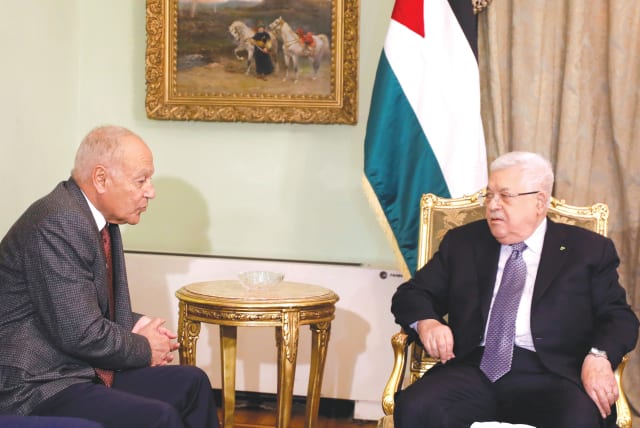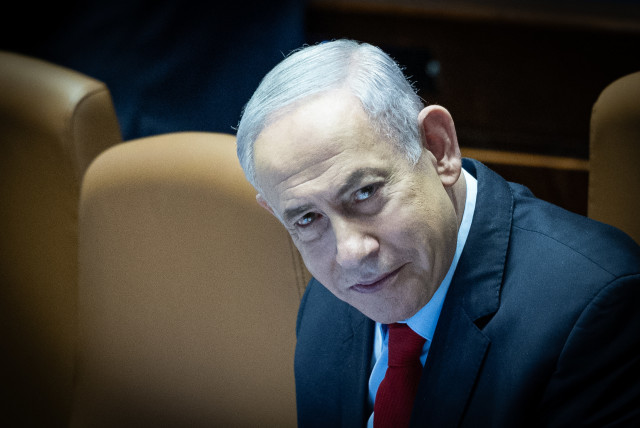Netanyahu and Israel did not prop up Hamas - opinion

Despite the fact that the political echelon is responsible for the October 7 failures, Israel is not the one that strengthened Hamas.
Following the October 7 massacre, and in fact, even before it, there have been repeated claims condemning Prime Minister Benjamin Netanyahu for the fact that, during his tenure, he worked to strengthen Hamas as part of a strategy to weaken the Palestinian Authority, with the aim of deepening the internal Palestinian division and preventing the establishment of a Palestinian state.
Although many in Israel and around the world use this claim to undermine Netanyahu’s government – and despite the fact that the political echelon and its leader are responsible for the October 7 failure (even if the main blame lies with the heads of the IDF and the Shin Bet) – Israel is not the one that strengthened Hamas. Even before and during the Oslo process, Israeli governments acted against the terrorist group, among other things, by expelling its leadership and eliminating its senior officials.
During the Second Intifada, Israel’s policy of assassinations against the Hamas leaders was intensified, and as a result, the leader of Hamas, Sheikh Ahmed Yassin, and other senior officials such as Abdel Aziz al-Rantisi, Ibrahim al-Makadmeh and Salah Shehade were killed. In practice, until the current war, it was Netanyahu who, as prime minister, led Israel to three of the four military confrontations with Hamas since the latter took control of the Gaza Strip in June 2007 – conflicts that caused great damage to Hamas’s military capability and led to its weakening.
Who is to blame?
When searching for the cause of the strengthening of Hamas and the weakening of the Palestinian Authority, the finger of blame must be pointed at two central players in the Middle East region. The first is the PA itself. Despite the claim that Netanyahu did everything he could to weaken the authority and its leader by avoiding conducting a peace process with them to resolve the conflict, it is the refusal of PA leaders Yasser Arafat and later Mahmoud Abbas that prevented an Israeli-Palestinian peace agreement.
In addition to Arafat’s refusal to accept the Israeli proposal during the Ehud Barak government at the Camp David conference and even the Clinton outline in 2000, Abbas himself refused a more generous proposal from Ehud Olmert in 2008, which guaranteed a Palestinian state on 100% of the West Bank and the Gaza Strip with east Jerusalem as its capital.
Even in the Netanyahu era, Abbas thwarted attempts to resolve the conflict no fewer than three times, when he chose to waste the ten-month freeze on Israeli construction in the settlements that was intended to open negotiations between the parties in 2010, failed the Kerry initiative in 2014, and of course refused to discuss the “Deal of the Century” during the Trump administration.
Besides the Palestinian refusal to make peace with Israel, the one who gave Hamas control of the Gaza Strip on a silver platter is the Palestinian Authority itself. Despite the massive investment by the US and the West in the PA’s security forces, they were found to lack any capabilities in the face of Hamas’s military wing, which took control of the Gaza Strip with ease in June 2007.
Involvement of the Arab world
Another factor that should be mentioned in helping to strengthen Hamas is the many countries in the Arab world. It is not just countries that consciously acted to strengthen Hamas and weaken the Palestinian Authority, such as Qatar, Turkey, and Iran, the latter having embraced the terrorist group since its establishment and considering it part of the “Axis of Resistance” under its leadership (except for a short period when there was a crisis between them due to Hamas’s lack of support for the Assad regime during the Syrian civil war).
Countries that share interests with Israel in regional issues, such as the Iranian nuclear threat, including Egypt, have also had a complex relationship with Hamas that has granted it international recognition as sovereign over the Gaza Strip, which deepened the internal Palestinian division and weakened the Palestinian Authority.
In conclusion, although Israel saw Hamas as sovereign in the Gaza Strip, conducted indirect negotiations with it, and agreed to bring money and goods into the enclave in order to prevent a humanitarian disaster there that would lead to international pressure on it, Israel is not the one that strengthened Hamas. In practice, the Palestinian Authority and the Arab world have a lot of weight in turning the terrorist organization into what it is today, both militarily and politically.
In light of the lessons of October 7, in which the entire Israeli security echelon was gravely mistaken in its assessment that Hamas had been deterred, it is better to be modest when it comes to Israel’s place and influence in the Middle East region regarding the strengthening and weakening of actors in the Palestinian arena.
The writer is a lecturer and research fellow at the University of South Wales, UK. His recent book is Israel: National Security and Securitization (Springer, 2023).
Jerusalem Post Store
`; document.getElementById("linkPremium").innerHTML = cont; var divWithLink = document.getElementById("premium-link"); if (divWithLink !== null && divWithLink !== 'undefined') { divWithLink.style.border = "solid 1px #cb0f3e"; divWithLink.style.textAlign = "center"; divWithLink.style.marginBottom = "15px"; divWithLink.style.marginTop = "15px"; divWithLink.style.width = "100%"; divWithLink.style.backgroundColor = "#122952"; divWithLink.style.color = "#ffffff"; divWithLink.style.lineHeight = "1.5"; } } (function (v, i) { });

